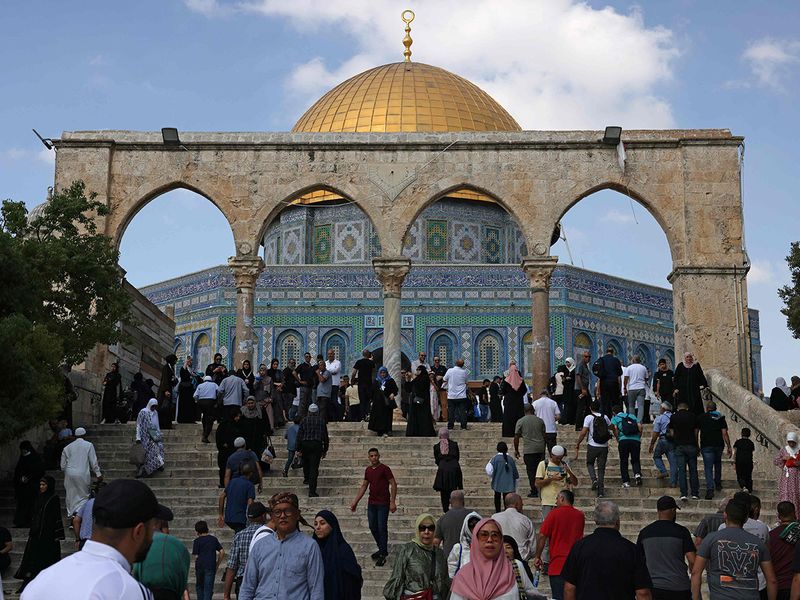
The Jewish issue is primarily a strange one, specifically within its European context. Presently, the alignment of European countries with Israel can be seen as a collective atonement for their persecution of Jews over centuries, which culminated in the acts of extermination. However, the issue is more complex than this.
In Europe, Jews historically formed a minority living in isolated ghettos. They often gravitated towards the financial industry since they weren’t primarily involved in farming or large-scale landownership.
The onset of the first industrial revolution brought about a heightened demand for capital as economies advanced. In the context of European mercantilism, funding commercial ventures became increasingly crucial. This led to a greater reliance on financing, which was often in the hands of Jewish communities.
Literary history has notably documented William Shakespeare’s significant work, “The Merchant of Venice.” This play was composed in the late 16th century. Without delving into its intricacies, the narrative addresses the avarice associated with Jewish moneylenders.
As the industrial revolution gained momentum and the colonial movement expanded, a complex blend of Western attitudes toward Jews began to emerge. This rejection stemmed from both Christian religious beliefs and economic competition.
Consequently, a palpable anti-Semitic sentiment began to flourish in Europe and the United States. Shylock , the central character in Shakespeare’s novel, came to symbolise greed in Western literature.
This hatred isn’t novel or resurfacing; it has endured throughout history. In his renowned book, “The Crusades Through Arab Eyes ,” Amin Maalouf sheds light on this enduring phenomenon, giving us a view of the crusades from the Arab side.
It narrates an incident dating back two millennia, portraying the ordeal of Jerusalem’s Jewish community as a harrowing foreshadowing of what would befall the Muslims, referred to as the “Franks” in the book.
“In the early hours of the battle, many of Jews joined in defending their neighbourhood located in the north of the city. However, as the wall collapsed, the fair-haired knights (Westerners) began to sweep the streets across the city. In response, the Jewish community congregated in the synagogue to pray. Yet, the Franks eventually sealed off all escape routes, stacked heaps of firewood around the structure, ignited a blaze, while those who tried to escape were killed in the alleys nearby, and the rest were burned alive.”
A history of co-existence
In another context, historical accounts do not indicate the extermination of Jews in Islamic Andalusia. Instead, they held significant positions within Andalusian authorities.
Their situation shifted during the Inquisition of Muslims (carried out during the reign of King Ferdinand II of Aragon and Queen Isabella I of Castile) when they were forcibly displaced and migrated to Arab North Africa. Notably, the Jews in the East did not experience persecution and coexisted peacefully alongside Muslims.
Modern European history recounts a poignant event where a large ship carrying German Jews and arrived on the shores of the United States in 1939, fleeing the Nazis.
However, they were denied permission to disembark in both America and Canada. Some passengers were able to disembark in Cuba, but the remainder were tragically forced to return, ultimately facing the horrors of the Holocaust.
The notion of Jewish persecution and the need to protect them is still on, and the idea of anti-Semitism emerged as one of the major sins in contemporary Western political culture, a ready-made charge that confuses the Jew and the Israeli.
German-European Nazism
The dark period of German-European Nazism saw the establishment of gas chambers and incinerators, used not only for the persecution of Jews but also for others.
This painful history left an indelible mark on subsequent generations, leading to the emergence of the concept of anti-Semitism as a grave sin in contemporary Western political culture. It is a charge that confuses the Jewish people with the Israeli state, highlighting the complex and multifaceted nature of this issue.
A few months ago, the book titled “Three Worlds: Memoirs of an Arab-Jew,” written by Avi Shlaim, a Jewish historian and a professor at the University of Oxford, was published. The memoir sheds light on the persecution of Mizrahi Jews by Western Jews in Israel, a lessor known aspect of the complex dynamics within the Israeli society.
In his book, Shlaim highlights the struggles he faced as a Jewish Arab, where speaking Arabic at home in Israel was met with discrimination, reflecting a form of racism within Israeli society.
The book is a valuable resource that delves into these complex dynamics and the disputes that exist even among Jewish citizens of varying cultural backgrounds. It provides rich insights into the multifaceted social fabric of Israel.
The heavy historical guilt within the conscience of many in the West led to a desire to resolve religious and economic conflicts by seeking a solution for the Jewish population. They saw Palestine as the place to provide refuge for Jews, using historical justifications for this purpose.
Over time, the same historical guilt led to Jewish citizens in the West being regarded as exemplary citizens- five-star citizens- earning them prominent roles in Western politics, commerce, and industry. Despite their relatively small population, they exerted a significant influence in these areas.
This explains why Western governments have put aside all the liberal values they uphold and advocate by unequivocally condemning the Palestinian side without reservation or adopting a balanced position. It is without even partially considering the harm and siege to which the Palestinians are subjected.

Ignoring Palestinian pain
They seem to disregard the suffering and blockade endured by the Palestinians. Even those who advocate for the Palestinian cause in Western capitals have faced restrictions as they have recently been prevented from gathering to voice their opinions on what is happening in Gaza today.
All the lofty talk about freedoms and liberalism seems to dissipate in these Western capitals when it comes to prioritising the continued existence of Jews in Palestine. The fear of reigniting the “Jewish question” appears to guide their actions.
The pressure on Jews in the region might cause some to contemplate emigrating, particularly to the West. This prospect could potentially spark renewed concerns about the “Jewish question” in societies are already surrounded by numerous social and political crises.
This, in a way, is the underlying motive for their substantial support for Israeli military actions in the West Bank and the Gaza Strip, as well as for the total disregard and indifference to the suffering of Palestinian civilians.
The rapid visits by Western leaders to Tel Aviv, to strongly advocate and fully condemn Hamas’s actions, extending that condemnation to all Palestinians, can be viewed as an effort to reassure those considering emigration to remain in a place where they are protected.
However, this does not imply that the timing of the events on Oct. 7 and the overall objectives of the operation lack a hidden political agenda, as these events are shrouded in significant ambiguity regarding their form and purpose.
Likewise, it does not either negate the evident Western favouritism towards the Israeli state, a preference influenced by historical and vested interests that serve the enigmatic objectives of the Oct. 7 actions.
Western bias further complicates the already intricate issues and does not contribute to their resolution. Instead, it amplifies their complexity and fosters an environment more conducive to radicalism and creates greater opportunities for militancy.
Mohammad Alrumaihi is an author and Professor of Political Sociology at Kuwait University









_resources1_16a3106d747_small.jpg)




